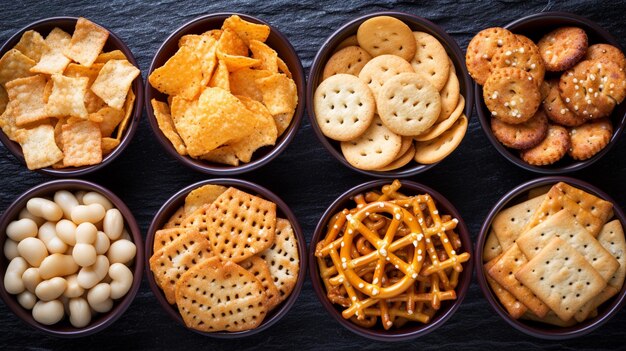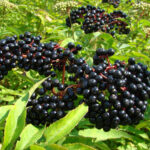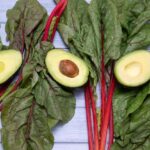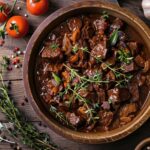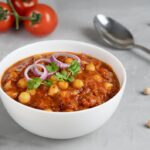Hearing health is often overlooked, but it plays a crucial role in our overall well-being. Research shows that our diet can significantly impact our auditory system. Consuming certain foods regularly may contribute to hearing loss over time, especially in the presence of underlying conditions such as high blood pressure or diabetes. Here are 20 foods that South Africans should avoid to preserve their hearing.
1. Salt
Excess salt can increase blood pressure, which can lead to reduced blood flow to the inner ear, potentially causing hearing issues. Opt for low-sodium alternatives and avoid processed snacks like chips, which are loaded with salt.
2. Sugar
High sugar levels can damage the nerves in your auditory system. This is particularly important for people with diabetes, as poor blood sugar control can exacerbate hearing loss.
3. Fried Foods
Foods that are high in unhealthy fats, such as fried chicken and chips, can lead to clogged arteries and reduced blood flow to the ears. Try to limit fried foods and choose healthier cooking methods like grilling or baking.
4. Processed Meats
Bacon, sausages, and other processed meats are packed with sodium and preservatives, which can increase blood pressure and harm your hearing. Replace these with lean, unprocessed protein sources such as chicken or fish.
5. Canned Soups
Canned soups are often loaded with salt, preservatives, and other additives that can affect blood flow and contribute to hearing loss. Opt for homemade soups or low-sodium versions to maintain healthy hearing.
6. Alcohol
Excessive alcohol consumption can damage the inner ear’s hair cells, leading to permanent hearing loss. It also affects the brain’s ability to interpret sound signals properly. Moderate your alcohol intake to avoid these effects.
7. Caffeine
Caffeine can reduce blood flow to the ears, affecting hearing. High levels of caffeine consumption can also exacerbate tinnitus (ringing in the ears). Reduce coffee, tea, and energy drinks to protect your hearing.
8. Artificial Sweeteners
Aspartame, a common artificial sweetener found in diet sodas and low-sugar products, has been linked to increased incidences of tinnitus and can trigger hearing-related issues in some people.
9. Fast Food
Burgers, fries, and other fast foods are high in sodium and unhealthy fats. Regular consumption of fast food can elevate your blood pressure and cholesterol levels, putting your hearing at risk.
10. Ice Cream
Although a favorite dessert, ice cream is high in sugar and unhealthy fats. Regular consumption can affect circulation, which impacts the ear’s ability to function properly over time.
11. Red Meat
Excessive red meat consumption, particularly processed red meats, can raise cholesterol and contribute to cardiovascular problems that affect hearing. Swap red meat for plant-based proteins or fish, which are healthier options.
12. Pickled Foods
While popular in South African braais and meals, pickled foods are high in sodium, which can cause fluid retention and increase pressure on the inner ear. Opt for fresh vegetables instead.
13. Margarine
Margarine contains trans fats, which are linked to hearing loss due to their effects on cholesterol levels and blood flow. Replace margarine with healthier fat alternatives like olive oil or avocado.
14. Pre-packaged Snacks
Pre-packaged snacks like crackers, biscuits, and chips often contain excessive salt and preservatives. These ingredients can contribute to hearing issues by raising blood pressure and damaging ear cells.
15. Soda
Sugary sodas are not only bad for your waistline but also for your hearing. High sugar intake can lead to inflammation and circulatory issues, increasing the risk of hearing loss. Replace sodas with water or herbal teas.
16. Pastries
Donuts, cakes, and other pastries are loaded with sugar and unhealthy fats. Regular consumption of these sweet treats can lead to poor circulation, affecting the delicate structures in the ears.
17. Cheese
While cheese is a good source of calcium, certain varieties like processed cheese are high in salt and fats. These can lead to high blood pressure and reduced blood flow to the ears, affecting hearing over time.
18. Pizza
Pizza often contains a combination of processed meats, high-sodium sauces, and fatty cheeses, making it a triple threat to hearing health. Limit your pizza intake and opt for healthier toppings like vegetables.
19. Instant Noodles
Instant noodles are popular due to their convenience, but they contain high levels of salt and preservatives. Regular consumption can increase the risk of hearing loss due to their negative effects on blood pressure.
20. Energy Drinks
Energy drinks contain high levels of caffeine and sugar, both of which can negatively impact hearing. They can lead to high blood pressure, dehydration, and tinnitus, so it’s best to avoid them altogether.
Hearing loss can develop slowly, often going unnoticed until it’s too late. By making conscious dietary choices, you can preserve your hearing for years to come. Reducing your intake of foods high in salt, sugar, and unhealthy fats will not only protect your ears but also improve your overall health. A balanced diet rich in fruits, vegetables, whole grains, and lean proteins will support both your auditory system and your well-being.
